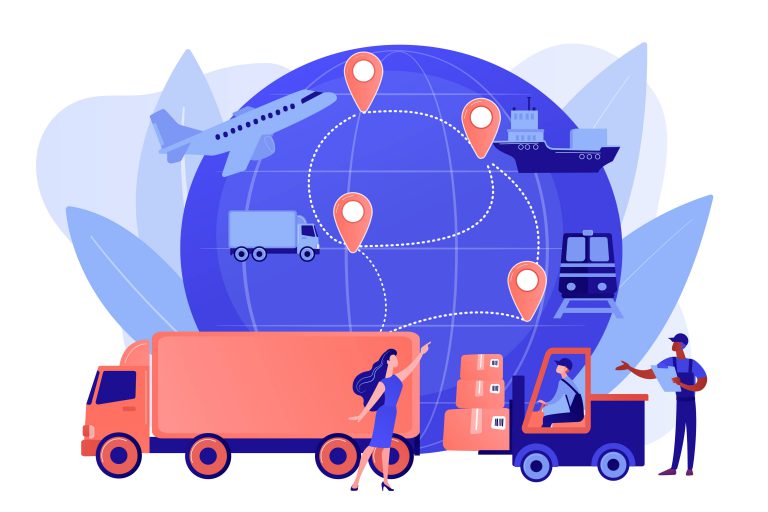The ease of internet access has leveled up the retail markets, making it feasible and easy for anyone to build a business online. People can own stores on eCommerce platforms and sell products worldwide without any real challenges. As per Internet Retailer, the sales of the U.S. eCommerce enhanced by 15% in 2018. Evolving eCommerce has not just transformed many retail businesses but has also changed the way buyers shop and their expectations on service, personalization, and communication.
Over the years, from 2014 to 2017, there has been a significant growth of 25.6% in eCommerce sales. Furthermore, in 2019, the worldwide eCommerce sales mounted to almost 3.5 trillion USD. Such global sales stats prove that eCommerce is a lucrative option for businesses, big or small, all over the world.
The eCommerce industry is an ever-evolving one. Trends are constantly setting in and changing the industry. The write-up below will help you understand what the future of eCommerce platforms will be like. Let us break down some trends for 2021 that will most likely magnify in the near future…
Ecommerce Automation
Ecommerce automation is one of the essential elements for any eCommerce platform. It involves warehousing automation, marketing automation, and beyond. With eCommerce, every business unit or department has an element that you can automate. Automation frees resources so employee time can be invested elsewhere. For instance, companies with large warehouses can invest in robotics and free up their staff to do more customer-centric activities. Supply chain management can also benefit from automation software and send inventory alerts when the stock begins to exhaust. Overall, eCommerce automation can sort out plenty of duties and help your business grow.
Visual Commerce Will Get Bigger
Visual commerce means using images not just for products but also on your eCommerce store such that users engage and convert. Top retailers like Bose are already using visual commerce, to stay ahead of the market and attract shoppers into purchasing. They feature various high-quality images along with shortcuts to direct product purchase options. Listed below are some ways to get into visual commerce:
- Change your product images from JPG to WebP or JPEG2000 formats. Changing the image format will enhance the loading speed and quality of the product image.
- Put up 360-degree videos or images of your products.
- Put up user-generated content on the product pages to gather interest.
- Install a visual search tool that enables your visitors and buyers to search products using product images.
- Drive traffic to your eCommerce platform and boost sales by creating graphic ads on Pinterest.
Shipping and Fulfillment
A slow-moving eCommerce trend is the availability of multiple fulfillment and shipping centers globally. As many customers are purchasing products online, there is a requirement to deliver these products in the shortest period. The fulfillment centers across the world are getting automated and more innovative. An advanced automated system guarantees you quick shipping and delivery and real-time data. Holding multiple inventories in different locations across a country can put your products in close vicinity of your customer. Multiple inventories and automation mean quicker delivery, happy customers, and lower transportation cost and time.
Sustainability Practices Will Influence Sales
Online buyers are demanding and intelligent. It is no longer about where one gets the best price tag. These days customers care about how the products they buy impact the environment. Plastic is entirely out for a whole section of people. And when speaking of containers, the most popular choice is glass.
Sustainable products are more than just a trend for people these days. It is much needed that retailers ensure that their store products are friendly to the environment and cause no threat. For instance, if you are a makeup brand, consider selling vegan products.
Private Label
Private labeling means producing a product under one company and selling it under a different brand name. It can help retailers craft new products without investing capital to start their line of products.
Other organizations can rely on businesses to create products specific to their buyers’ needs. The concept of private labels is excellent as they enhance the value of the product. Private label is an apt choice for anyone selling dropshipping or non-branded products.
Why is private label an eCommerce trend? If your business is of a niche where specific standards are to be maintained, or certain materials are restricted for use, private labeling can help you get through. The private label trend helps to reduce the barrier for small businesses and helps them enter a competitive space.
Online Shopping Is Going Mobile
By 2021 year-end, smartphone purchases are expected to make around 73% of the entire eCommerce sales. Besides, if your eCommerce platform is not mobile-friendly, 30% of users will most likely abandon their shopping carts. Being an online store, you must emphasize the requirements of mobile users.
Voice Commerce Will Rise
People rely more and more on voice assistants like Google Assistant, Amazon Echo, etc., to do everything for them. Studies suggest that nearly 75% of U.S. households will sync with intelligent speakers by the year 2025. By 2022, voice commerce sales are expected to hit 40 billion USD.
An added reason why voice commerce is evolving is the growing convenience and accuracy of the technology. Every smart speaker brand is coming up with regional language support to aid customers to shop with additional comfort.
Omnichannel Shopping Will Become the New Normal
Omnichannel shopping means offering buyers a consistent and seamless experience across all devices and channels. In a poll by Harvard Business Review of 2017, 73% of buyers admitted using multiple channels for shopping. With the number of customers using voice assistants and mobile devices, the count of omnichannel buyers is most likely to increase in 2021.
New Payment Options
Payment options often become the reason why your customers choose a specific brand. If you do not offer their preferred choice of payment, they might not show from your online store. So far, many eCommerce platforms offer digital wallet payment options, including PayPal, Google Pay, Apple Pay, Samsung Pay, etc., along with debit and credit cards. Cryptocurrencies like Bitcoins have several benefits like no reverse transactions and low transaction fees while shopping online. In 2021, businesses might begin accepting cryptocurrency transactions.
Dynamic Pricing
Dynamic pricing lets eCommerce store owners attract more customers and stay competitive. Even if your store features the best products worldwide, you will not generate enough sales if you do not price them correctly. Make sure to tag your products with the right price. Use dynamic pricing tools and software to determine the apt price for your goods. Such tools and software give you real-time insights into market demand, your competitors, and the perceived rate of your products such that you can determine the optimal price.
Conclusion
The eCommerce future is full of innovations, changes, and new trends for both buyers and businesses. If you are an eCommerce company worker or an entrepreneur, you must keep track of the eCommerce landscape reforms. The ideal way to flourish your business is to keep on learning and adapting. Read, watch, observe and apply!










.png?h=250&fm=webp)
.png?h=250&fm=webp)
.png?h=250&fm=webp)



.png?h=250&fm=webp)
.png?h=250&fm=webp)
.png?h=250&fm=webp)


.png?h=250&fm=webp)



.png?h=250&fm=webp)
















.png?h=250&fm=webp)

.png?h=250&fm=webp)
.png?h=250&fm=webp)



































































































































.png?h=250&fm=webp)


.jpg?h=250&fm=webp)





 copy.png?h=250&fm=webp)























_ Why do you need one.png?h=250&fm=webp)


























































.jpg?h=250&fm=webp)

.png?h=250&fm=webp)



.png?h=250&fm=webp)

.jpg?h=250&fm=webp)




.png?h=250&fm=webp)









.jpg?h=250&fm=webp)
